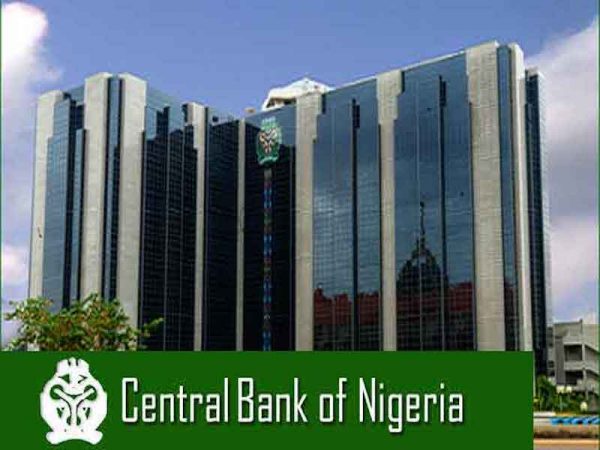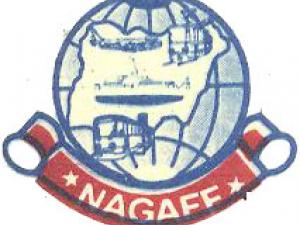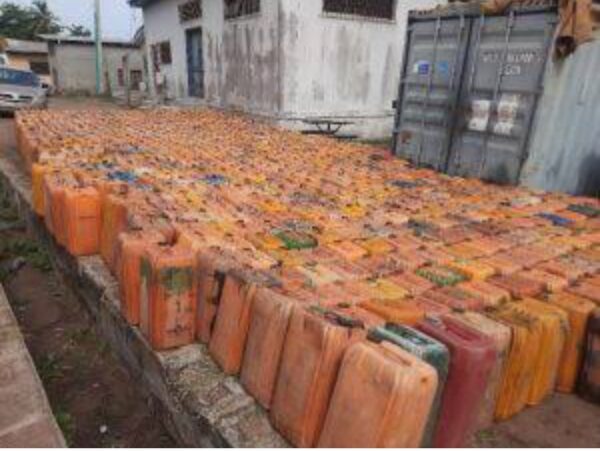New CBN Regulation Checks Ship Demurrage, Container Deposit, Forex Abuse
- Foreign shipping firms fleece Nigeria off N144 trillion annually
- Buhari to launch book on, “Harnessing Nigeria’s Maritime Assets”
In what will later become a twin regulatory window for the activities of the multinational shipping firms operating in Nigeria, all in a bid to entrench transparency in the forex market and curb the incidence of capital flight among the operators in the maritime sector, the Central Bank of Nigeria(CBN) has made it mandatory for all shipping agencies in Nigeria to operate Disbursement Accounts(DAs), from where the local agents carry out operational costs for their principals overseas.
This is contained in the just released revised CBN Foreign Exchange Manual with provisions and mandate that have taken effect since August 1, 2018. Henceforth, according to the new rule, the CBN and the port economic regulator, the Nigerian Shippers’ Council (NSC) will jointly moderate ship and container demurrage charges and not just monitoring foreign exchange inflows and capital repatriation.
Consequently, the apex bank and the NSC will compel all shipping agencies to open DAs and give report on their functionality on regular basis even as the manual provides penalty in event of infringement .
The NSC said this was in line with Article 4 of the United Nations Conference on Trade and Development (UNCTAD) minimum standards for shipping agents all over the world.
The Executive Secretary of the NSC, Mr. Hassan Bello had explained at a shipping industry stakeholders’ meeting in Lagos recently that maintenance of a disbursement accounts as provided by ‘UNCTAD Minimum Standards for Shipping Agents’ stops the agent from going to the local market to source foreign exchange to settle charges incurred by the vessel locally.
Operator have also asserted that Nigeria loses $4billion (N1.44 trillion) annually for not introducing the disbursement accountsfor all shipping agents, such amount, can bring about a lot of multiplier effect in the industry and the national economy.
A management source in the NSC told MMS Plus on Friday that this new regulation if effectively enforced will help to address the problem of ship demurrage and container deposit refund, which is becoming seemingly unmanageable in the maritime industry.
A circular announcing the regulations to authorized dealer banks and the public, signed by the Director, Trade and Exchange at the CBN, F..O Okonji stated that the changes made in the manual were aimed at streaming documentation requirements, enhancement of transparency of transactions and engendering compliance by stakeholders.
Part of the guideline stipulates that CBN shall operate a single market structure through the autonomous/inter-bank market, including the Inter-Bank Foreign Exchange Market with the CBN participating in the FX market through interventions directly in the inter-bank market or through dynamic “Secondary Market Intervention Mechanisms”.
Furthermore, to promote the global competitiveness of the market, CBN said the inter-bank FX market will be supported by the introduction of additional risk management products offered by the CBN and authorised dealers to further deepen the FX market, boost liquidity and promote financial security in the market.
This Foreign Exchange Manual is compiled and issued by the Central Bank of Nigeria (CBN) pursuant to the powers conferred on it by the Foreign Exchange (Monitoring & Miscellaneous Provisions) Act of 1995. The Manual is intended as a guide to authorized dealers in processing foreign exchange applications for their customers.
“This edition has been revised in line with the provisions of the Act of 1995 and therefore, supersedes all other editions and amendments issued prior to the date of this publication,” the bank noted.
Meanwhile, the book titled: “Harnessing Nigeria’s Maritime Assets – Past, Present and Future authored by the Executive Director, Finance and Administration of the Nigerian Maritime Administration and Safety Agency (NIMASA), Mr. Bashir Jamoh will be launched this week, on Tuesday, August 28, 2018 at the Transcorp Hilton Hotel, Abuja.
The book which is a chronicle of events in Nigeria’s maritime industry will President Muhammadu Buhari, as the Special Guest of Honour alongside dignitaries from all walks of life.
Dignitaries to grace the occasion include; the Minister of Transportation, Rt. Hon. Rotimi Amaechi as the Chairman of the occasion,Governor of Kaduna State, Mallam Nasiru El-Rufai and the Director General of NIMASA, Dr. Dakuku Peterside as the Chief Hosts, amongst others.
Speaking ahead of the book launch, Mr. Jamoh said “the maritime sector is very critical to the growth of the economy, hence the need to do all we can as Nigerians to preserve it. This public book presentation is my own way of contributing to the growth of the sector and also to point policy makers, operators and scholars to the direction of sustainably developing the nation’s maritime assets”.
The Author holds a Master’s degree in Management from the Korea Maritime and Ocean University in South Korea, an Advanced Diploma in Management from the Bayero University Kano, a Professional Certificate in Materials Management from the Institute of Logistics in the UK and a Diploma in Accounting from the Ahmadu Bello University Zaria.
The NIMASA Executive Director who is a seasoned administrator with over 25 years’ experience in the maritime sector is currently a Ph. D student at the University of Port Harcourt, specializing in Logistics and Transport Management.
In addition, he holds membership of several professional Associations including the Chartered Institute of Transport and Logistics, Chartered Institute of Administration of Nigeria and Institute of Maritime Economists (Canada).








